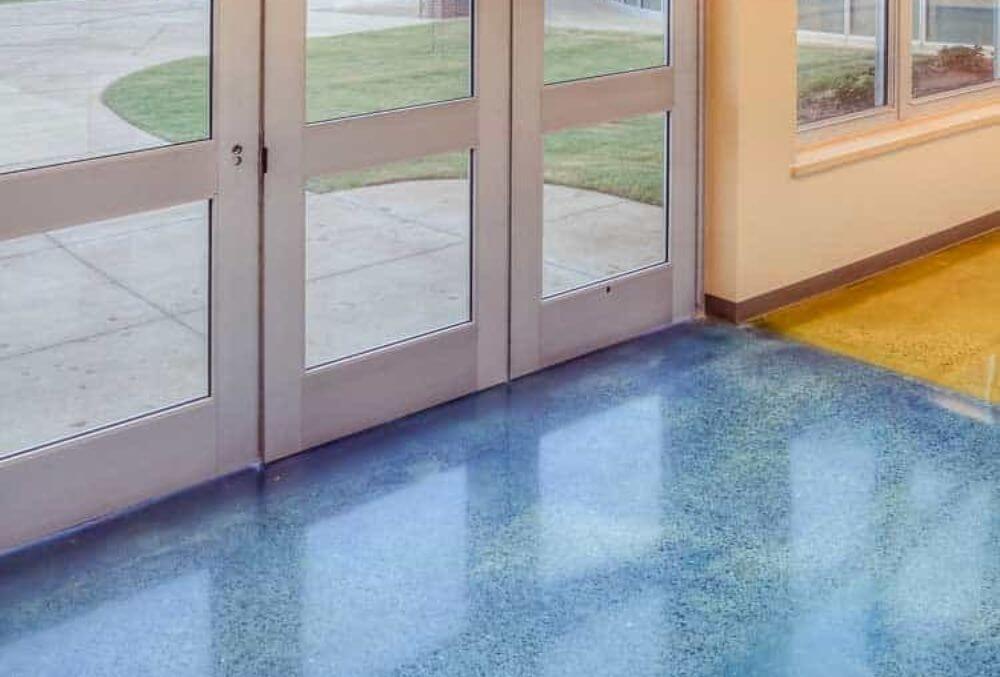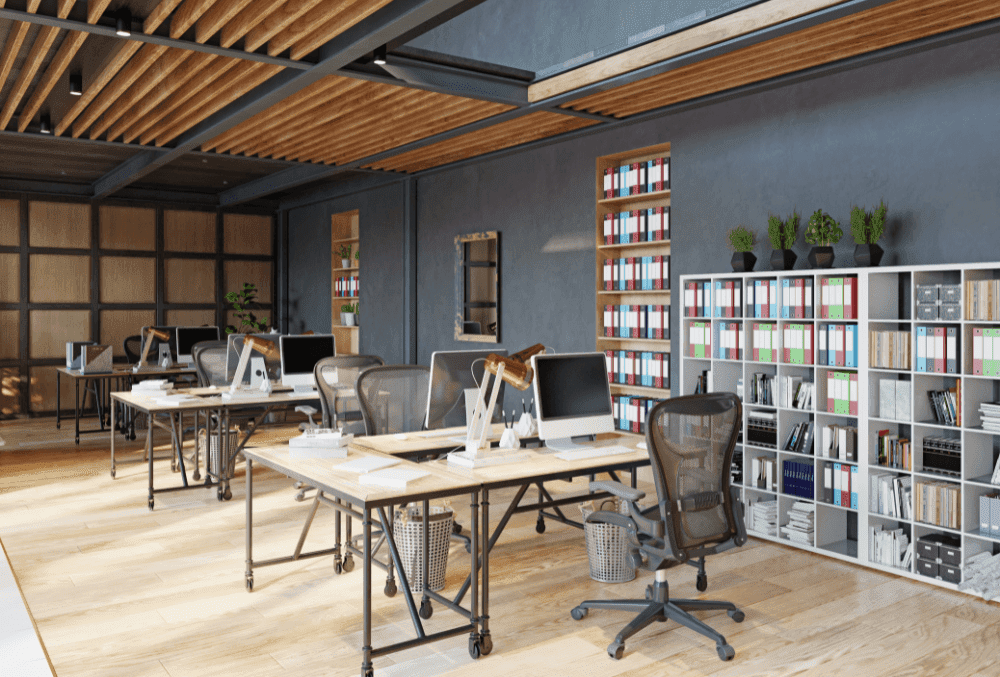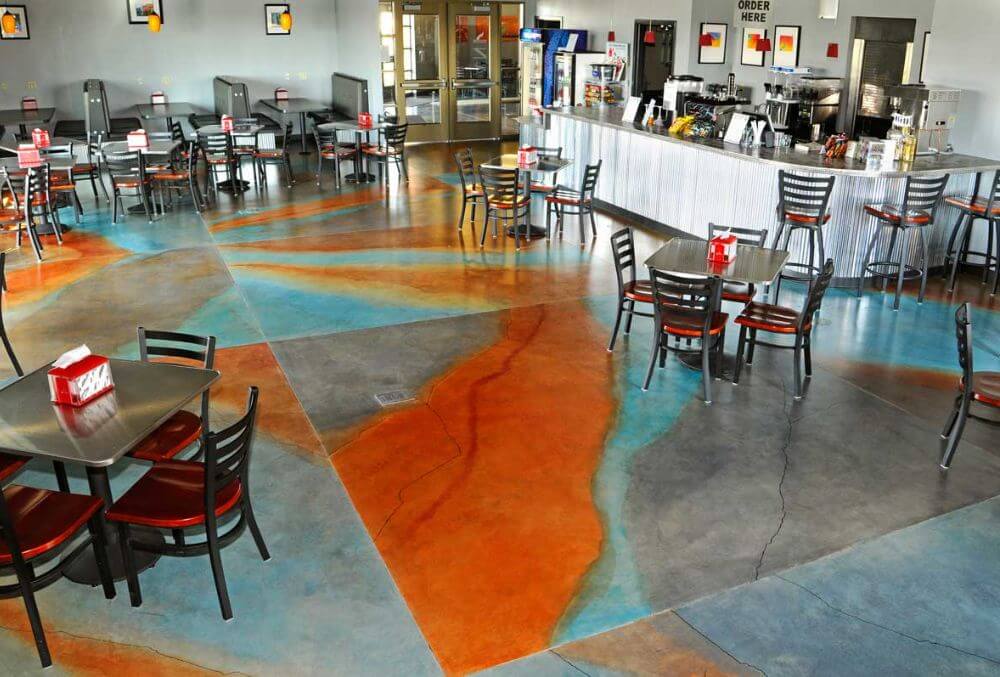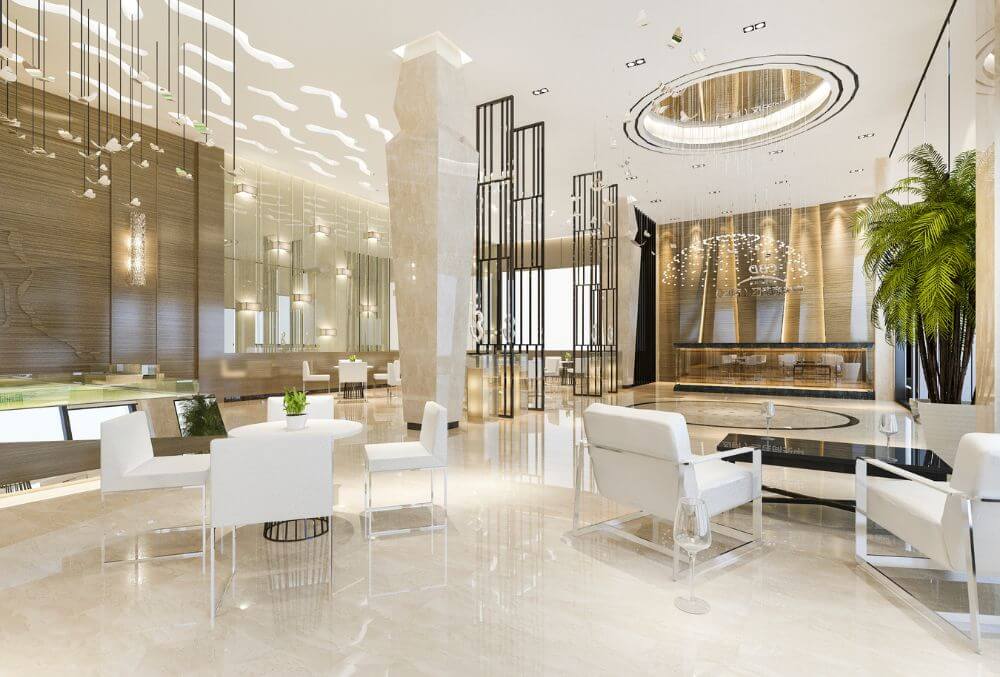Selecting the appropriate commercial flooring finish is of paramount importance for businesses in Dallas, whether one is managing a retail establishment, restaurant, hotel, or other high-traffic commercial environments.
With a wide range of options available, each flooring type presents distinct advantages that can enhance aesthetics, durability, and safety.
This article examines various commercial flooring finishes designed for specific environments, taking into account essential factors such as maintenance, budget, design, and environmental considerations.
By the conclusion of this discussion, readers will possess a clearer understanding of the most suitable flooring choices to elevate their commercial spaces, whether they are retail stores, hospitality venues, or gyms.
What Are the Different Types of Commercial Flooring Finishes?
In the field of commercial flooring, a diverse array of finishes is available to meet varying needs, styles, and applications. It is imperative for businesses to select materials that align with both their aesthetic preferences and functional requirements.
Options range from carpet and tile to marble and granite, as well as wood flooring and concrete alternatives; each type possesses distinct characteristics that can significantly impact the ambiance and performance of a space.
For example, decorative concrete offers a contemporary appearance, whereas resilient flooring solutions provide durability in high-traffic areas.
Therefore, it is essential to thoroughly evaluate all available finishes, including floor restoration and coatings, when considering flooring for commercial environments.

Factors to Consider When Choosing a Commercial Flooring Finish
Selecting the appropriate commercial flooring finish necessitates a careful evaluation of several critical factors that can substantially influence both the environment and the functionality of the space.
Durability is of utmost importance, particularly in high-traffic areas such as hospitality venues and educational institutions; it must be effectively balanced with aesthetic considerations, including colors, patterns, and textures.
Furthermore, it is essential to assess the cost and budgetary constraints, alongside safety factors such as slip resistance, to ensure that the selected flooring not only fulfills design objectives but also complies with performance standards and maintenance requirements.
Durability and Maintenance
Durability and maintenance are essential factors to consider when selecting commercial flooring, particularly in high-traffic environments such as retail stores and hospitality venues.
Flooring materials such as polished concrete and epoxy flooring are well-regarded for their strength, durability, and longevity, which significantly reduces the need for frequent maintenance and repairs.
In contrast, while carpets may necessitate more regular upkeep, they can create a warm ambiance that enhances the overall design, whether in hospitality or residential flooring applications.
When evaluating flooring options, it is important to consider how various materials not only fulfill aesthetic requirements but also endure the demands of daily use.
Wood flooring, for example, offers a classic and elegant appeal that can enhance any commercial space; however, it requires periodic refinishing to maintain its pristine condition.
On the other hand, vinyl flooring presents impressive resilience and versatility, making it an excellent choice for high-traffic areas. This material is relatively easy to clean and is resistant to staining, ensuring a consistently polished appearance.
Additionally, decorative concrete has gained popularity due to its strength and versatility, enabling it to withstand heavy loads while providing a variety of design options suitable for both commercial and industrial flooring.
Businesses can utilize this material to create distinctive visual statements without compromising functionality.
- Polished Concrete: High durability, low maintenance.
- Vinyl Flooring: Stain-resistant, easy to clean, and versatile.
- Wood Flooring: Aesthetic appeal, requires refinishing.
- Decorative Concrete: Visual impact while ensuring strength.
Aesthetics and Design
Aesthetics and design are fundamental considerations in the selection of commercial flooring, as they significantly impact the ambiance and perception of a space.
With an extensive array of colors, patterns, and textures available, businesses can choose flooring finishes that align with their branding while also fostering an inviting environment for both clients and employees, reflecting their investment in quality and design.
Options such as luxury vinyl tile (LVT) and decorative concrete not only enhance visual appeal but also provide versatility in design.
In the pursuit of creating the appropriate atmosphere, decisions regarding commercial flooring should be guided by several critical design elements, with input from professionals and installation teams.
For example, vibrant patterns in a restaurant can stimulate the appetite and attract attention, while muted tones in a corporate office may promote a calm and professional ambiance.
Cost and Budget
When considering commercial flooring, cost and budget are critical factors that significantly influence the final decision.
Businesses must evaluate the total cost of ownership, which encompasses not only the initial installation expenses but also the long-term maintenance and durability of the flooring options.
For example, while high-end finishes such as marble and granite may incur substantial upfront costs, their longevity may justify the investment over time compared to less expensive alternatives.
Understanding the relationship between price and quality will enable businesses to make informed decisions that not only align with their budgetary constraints but also support their operational needs over time, taking into account both initial installation expenses and long-term performance.
Safety and Slip Resistance
Safety and slip resistance are paramount considerations in the selection of commercial flooring, especially in high-traffic environments such as gyms and restaurants.
Regarding safeguarding the well-being of both patrons and employees, selecting the appropriate flooring is essential. Utilizing materials that offer sufficient slip resistance is vital in preventing accidents and enhancing the overall safety of the area.
Epoxy flooring, for instance, is frequently preferred for its durability and capability to maintain a secure surface under various conditions, making it an ideal choice for both commercial and industrial applications.
Similarly, textured tiles can deliver comparable benefits while offering diverse aesthetic options.
Among the numerous choices available, rubber flooring is particularly advantageous in settings such as fitness centers due to its shock absorption properties and superior grip, ensuring safety and performance.
Additionally, vinyl sheets with embossed surfaces are not only easy to maintain but also provide enhanced slip resistance compared to standard alternatives.
Consider implementing the following options:
- Textured vinyl for dining areas
- Rubber mats in kitchens
- Polished concrete for versatile, high-traffic zones
Ultimately, investing in safety-oriented flooring solutions yields significant benefits in terms of long-term maintenance and customer satisfaction.
Best Commercial Flooring Finishes for Retail Spaces

When selecting flooring for retail spaces, specific finishes are preferred due to their durability, aesthetic appeal, and ease of maintenance.
Luxury vinyl tile (LVT) is particularly noteworthy for its design versatility, enabling retailers to establish distinctive aesthetics that align with their brand identity, and offering a balance between aesthetic appeal and functionality.
In contrast, polished concrete offers a sleek, modern appearance capable of withstanding significant foot traffic.
Furthermore, carpet tiles provide comfort and warmth, making them a favored choice for cultivating inviting environments within retail establishments, enhancing both aesthetics and practicality.
Luxury Vinyl Tile (LVT)
Luxury Vinyl Tile (LVT) is an excellent choice for commercial flooring in retail environments, recognized for its remarkable durability and aesthetic versatility.
With an extensive array of design options, LVT can replicate the appearance of natural materials such as wood and stone, while also providing enhanced moisture resistance and ease of maintenance.
This characteristic makes it particularly suitable for retailers aiming to establish visually appealing settings without compromising functionality. Additionally, it is an excellent choice for Dallas commercial flooring needs.
Along with its attractive appearance, LVT presents numerous advantages that render it especially appropriate for retail applications.
Its design flexibility enables retailers to select from a variety of colors, patterns, and textures, effectively complementing their brand identity and enhancing the overall customer experience.
The durability of LVT ensures that it can withstand high foot traffic without compromising its structural integrity, thereby serving as a long-term investment.
The combination of these features not only enhances the shopping environment but also aligns with the practical requirements of retail operations, resulting in a space that is both inviting and efficient.
Polished Concrete
Concrete flooring, including polished concrete, represents an excellent option for commercial flooring in retail environments, recognized for its durability and contemporary aesthetic.
Polished concrete represents an excellent option for commercial flooring in retail environments, recognized for its durability and contemporary aesthetic.
This flooring choice not only offers a sleek, industrial appearance but also demonstrates remarkable resilience to heavy foot traffic, making it a practical solution for bustling settings.
Its low maintenance requirements render polished concrete an economical long-term investment for retailers.
A notable feature of this flooring is its ability to retain visual appeal over time. The shine produced during the polishing process effectively reflects light, enhancing the overall ambiance and creating a sense of spaciousness within the retail space.
The resistance to staining and damage ensures that it remains in pristine condition, even in high traffic areas where spills and accidents are commonplace.
Collectively, these characteristics position polished concrete as a premier flooring solution for modern retail spaces, offering both functionality and style to enhance the shopping experience.
Carpet Tiles
Carpet tiles are a part of many sustainable commercial flooring solutions.
Carpet tiles have become an increasingly popular option for retail environments, offering a distinctive combination of comfort and design flexibility.
The versatility of carpet tiles is unparalleled; they allow retailers to establish a personalized ambiance that aligns with their brand identity.
With a wide range of options available, including striking geometric patterns and calming earthy tones, businesses can create environments that effectively engage their target audience.
Additionally, carpet tiles provide significant advantages in terms of comfort. Their soft surfaces encourage customers to linger, potentially increasing sales.
The practicality of carpet tiles is evident in their ease of maintenance, allowing for prompt clean-ups and replacements. This feature is particularly advantageous in high-traffic areas, where wear and tear may be prevalent.
Furthermore, these tiles possess excellent sound absorption properties, contributing to a more inviting and serene shopping experience. This reflects a thoughtful approach to commercial flooring solutions.
Top Commercial Flooring Finishes for Restaurants

In the restaurant industry, the selection of appropriate flooring is essential for both aesthetic appeal and functional performance. Several finishes are particularly noteworthy for their suitability in food service environments, including Limestone, Slate, and Travertine.
Epoxy flooring is widely recognized for its durability and ease of maintenance, rendering it ideal for high-traffic areas that are susceptible to spills and stains.
Hardwood flooring contributes warmth and elegance to dining spaces, whereas ceramic tiles offer a practical solution with a wide range of design options. Epoxy flooring Dallas services can ensure proper installation and maintenance of these durable floors.
Epoxy Flooring
Epoxy flooring dallas services are renowned for expertise in project management and adhering to specifications.
Epoxy flooring is an exceptional choice for commercial settings, particularly in restaurants, due to its outstanding durability and minimal maintenance requirements.
This flooring option is capable of withstanding the demands of both busy kitchens and dining areas, making it a practical solution for maintaining cleanliness and safety.
Additionally, epoxy can be customized in various colors and finishes to align with the restaurant’s branding and overall ambiance.
Along with its remarkable resilience, epoxy flooring is resistant to stains and spills, which are prevalent in restaurant environments. This feature not only protects the underlying surfaces but also reduces the time and effort required for daily cleaning.
Another significant advantage of epoxy flooring is its design versatility; restaurants can choose a glossy finish to enhance lighting or a matte texture for a more understated appearance.
With such a wide range of options available, establishments can effectively reflect their unique style while benefiting from the practical attributes of epoxy flooring.
Hardwood Flooring
Wood Flooring also includes options like Marble and Granite, which add a unique touch to the space.
Hardwood flooring represents an elegant and sophisticated choice for restaurants, contributing to a warm and inviting atmosphere that enhances the overall dining experience.
This flooring option not only elevates the aesthetic appeal of the space but also offers significant durability when properly maintained.
Although hardwood may require more upkeep compared to alternative materials, its timeless charm often justifies the investment, particularly for upscale dining establishments.
Selecting hardwood flooring conveys a message of sophistication and greatly contributes to the establishment’s overall ambiance.
One of the primary advantages of this flooring option is its capacity to withstand heavy foot traffic, making it particularly suitable for bustling restaurants.
Ceramic Tiles
Ceramic tiles are among the many dallas commercial flooring options that offer durability and aesthetics.
Ceramic tiles represent a highly practical flooring option for restaurants, recognized for their functionality and design versatility.
These tiles offer an extensive array of design options, significantly enhancing the overall atmosphere of the dining experience.
Restaurants frequently utilize ceramic tiles in high-traffic areas due to their durability, ensuring that the flooring can endure the daily demands of a busy environment without exhibiting signs of wear.
Furthermore, the non-porous nature of ceramic tiles provides inherent resistance to bacteria, which is essential for maintaining hygiene in food service settings.
Recommended Commercial Flooring Finishes for Hotels

Hotels also benefit from hospitality industry flooring solutions.
Hotels necessitate flooring finishes that effectively balance aesthetics, comfort, and durability, with several options emerging as particularly suitable for these environments.
- Carpeting offers a plush texture that enhances guest comfort,
- laminate flooring provides a resilient surface that can emulate the appearance of wood or stone at a significantly lower cost.
- Furthermore, natural stone tiles, such as marble, granite, Limestone, and Slate, contribute a luxurious element to hotel lobbies and common areas.
- Educational settings like Schools can also benefit from durable flooring options.
Carpeting
Carpeting options can also be tailored for gym flooring needs.
Carpeting is a preferred selection in hotels due to its capacity to provide warmth and comfort for guests, rendering it particularly suitable for areas such as guest rooms and hallways.
The wide array of colors, patterns, and textures available enables hotels to establish a distinctive aesthetic that aligns with their brand identity, while also contributing to sound insulation and overall comfort.
Beyond enhancing guest comfort, carpeting plays a critical role in creating a welcoming atmosphere that can leave a lasting impression.
The softness of the carpet underfoot significantly alleviates fatigue for both guests and staff who traverse the space throughout the day.
Moreover, carpets serve as effective sound dampeners, minimizing noise levels, which is essential for maintaining a tranquil environment in hotels where serenity is paramount.
This acoustic advantage is especially beneficial in high-traffic hallways and communal areas, fostering a peaceful retreat for visitors.
Laminate Flooring
Laminate flooring is an increasingly favored option for hotels, offering a cost-effective alternative that does not sacrifice durability or aesthetic appeal.
This innovative flooring solution enables establishments to enhance their visual appeal while remaining budget-conscious.
With a diverse array of designs available, laminate can effectively imitate the appearance of natural materials such as wood or stone, allowing hotels to maintain an upscale image without incurring the associated costs.
Additionally, laminate flooring is easy to maintain and resistant to scratches, making it particularly suitable for high-traffic areas.
Along with saving on installation and replacement costs, laminate flooring presents remarkable design versatility.
The straightforward installation process facilitates a reduction in downtime, ensuring a smooth transition that does not disrupt guest experiences.
Natural Stone Tiles
Natural stone tiles, including materials such as Marble, Granite, Limestone, Slate, and Travertine, are emblematic of luxury and sophistication, making them an outstanding flooring choice for hotels that seek to cultivate an elegant atmosphere.
These tiles not only significantly enhance the aesthetic appeal of lobbies and dining areas but also provide exceptional durability and longevity. It is imperative to consider the maintenance requirements of natural stone to ensure it retains its pristine appearance.
Incorporating natural stone tiles into hotel design presents a variety of advantages that extend beyond mere aesthetics.
While maintenance entails a certain level of commitment, regular sealing and the implementation of appropriate cleaning methods can streamline upkeep.
This enables hotels to preserve their luxurious appearance while providing guests with a uniquely elegant experience.
Factors to Consider When Hiring a Commercial Flooring Contractor
When engaging a commercial flooring contractor in areas like commercial flooring Dallas, it is essential to consider several factors that can significantly impact the success of the project.
The contractor’s experience and expertise with specific flooring materials, such as vinyl, wood, or epoxy, are critical to ensuring a high-quality installation.
Furthermore, assessing the contractor’s reputation and reviews from previous clients can offer valuable insights into their reliability and craftsmanship.
Additionally, it is important to understand the cost, timeline, and project management capabilities of the contractor to achieve the desired results within the established budget and time constraints.
Experience and Expertise
Experience and expertise are pivotal factors to consider when selecting a commercial flooring contractor, as they are directly linked to the quality of installation and overall project outcomes.
A contractor with a proven track record across various flooring types, including resilient flooring, tile, and wood, is equipped to navigate challenges effectively and ensure that the project adheres to all specifications and standards.
When choosing a contractor for commercial flooring projects, it is crucial to assess their capability to deliver high-quality installations that not only enhance aesthetic appeal but also withstand the rigors of daily use.
A seasoned professional brings invaluable insights gained from years of experience in managing diverse projects, which significantly contributes to:
- The efficiency of the installation process
- The ability to anticipate potential obstacles
- Proficiency in implementing best practices for durability
This extensive knowledge can result in solutions that save both time and costs while ensuring that the final product meets or exceeds client expectations, thereby fostering satisfaction and trust.
Furthermore, experienced contractors often maintain established relationships with suppliers, which can provide clients with access to superior material options and potentially reduced costs.
Reputation and Reviews
The reputation and reviews of a commercial flooring contractor are critical factors in assessing their reliability and the quality of their work.
Client testimonials and online reviews offer valuable insights into the contractor’s past projects, enabling potential clients to evaluate their commitment to excellence and customer service.
It is essential to conduct a comprehensive analysis of the feedback provided by previous clients, as this can serve as a reliable indicator of overall performance.
- Analyzing the quantity of positive reviews can help one gauge the level of customer satisfaction.
- Paying attention to recurring themes in client feedback may reveal strengths and weaknesses that are not immediately apparent.
Selecting a contractor based solely on pricing can lead to unsatisfactory outcomes; therefore, considering reputation and reviews is crucial for making a wise investment and enhancing the likelihood of achieving superior results.
Ultimately, informed decisions grounded in thorough research can significantly improve the success and satisfaction of a project.
Cost and Budget
Understanding the cost and budget implications of hiring a commercial flooring contractor is critical for ensuring the success of any project.
Achieving a clear financial overview not only assists in avoiding unforeseen expenses but also facilitates effective project management.
It is essential to obtain detailed quotes that encompass all aspects of the installation process, including materials, labor, and any potential additional costs.
Balancing quality with budget considerations enables clients to make informed decisions and derive optimal value from their investment.
Timeline and Project Management
Timeline and project management capabilities are essential factors to consider when selecting a commercial flooring contractor, as they can greatly influence the overall efficiency of the project.
A dependable contractor should present a detailed schedule that outlines key milestones and completion dates, ensuring that the project progresses smoothly and adheres to the established timeframe.
Effective scheduling not only helps maintain project momentum but also promotes timely communication among all stakeholders involved.
By implementing a comprehensive timeline, a contractor enables clients to anticipate potential challenges and make informed decisions to address them proactively.
- Regular updates and progress reports can enhance collaboration between teams, facilitating quicker problem-solving, especially in environments like schools and hospitality sectors where gym flooring installations might be involved.
- Adherence to the timeline assists in managing budgetary constraints, thereby preventing unforeseen expenses that often arise from delays.
Consequently, utilizing robust project management techniques is crucial, as these directly correlate with the success of commercial flooring projects, ultimately enhancing the overall quality and satisfaction associated with the completed work.

